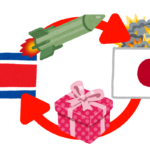
August is National Language Month in the Philippines, and it was reported in the "Manila Bulletin" that President Marcos gave a speech on August 2.
The national language of the Philippines is Filipino, but English is also an official language, especially in higher education; in 2019, the Supreme Court ruled that Filipino language courses in university education are not required.
One of the reasons why Filipino is not used in higher education is that technical and academic terms are not in the Filipino language. Therefore, not only in higher education, but also in primary education, math, science, health, and other subjects must be taught in English. If students do not understand English, they will not be able to understand these subjects.
It is said that one of the reasons that Filipinos' academic performance in science and math is the lowest among the 58 countries surveyed is because they did not receive satisfactory English in school.
President Marcos believes that if we can teach science and math in the Filipino language, we will be able to achieve better results. If we love the Filipino language and take pride in it, we will definitely have a prosperous future.
After opening the country to the outside world after more than 200 years of isolation, Japan invited foreigners from the West in order to catch up with the Western powers of the time. At the same time, Japan was forced to translate Western books into Japanese and publish them in order to make the new knowledge its own and disseminate it widely. Naturally, there were many concepts and words in foreign languages that had never existed in Japan before. Meiji intellectuals created numerous words to express these foreign languages in Japanese. The efforts of these predecessors have created an environment in which we can study and research books that have been translated into Japanese.
When President Marcos refers to the intellectualization of the Filipino language, I think he is referring to the Japanese language as a foreign language that Japan once walked in the past.
However, this will involve considerable difficulties.
The reason why I think so is that the Filipino language is alphabetized. And that English is the official language.
Japan was able to convert English, German, and French words into Japanese because of kanji. Since kanji characters themselves have meanings, it was possible to create Japanese words by combining corresponding kanji characters based on the meanings of foreign words. This was difficult with the phonetic alphabet.
If we were to create concepts and words that do not exist in the Filipino language, we would have to create new Filipino words. Furthermore, it would be difficult to popularize the new words.
It would be better, then, to incorporate words from English, which is already the official language, into the Filipino language.
I am not against the intellectualization of the Filipino language. It is important to brush up on the national language, not just Filipino.
There are thousands of languages in the world, but it is said that 90% of them will disappear by 2050.
In this context, I hope that Filipino as well as other regional languages (Visayan, Ilocano, etc.) will continue to mingle and prosper, as they are a source of pride for Filipinos.









